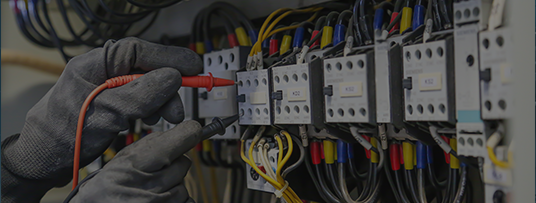Posted on June 19, 2024 Daniel Walton Aerospace
Circuit breakers are essential components in any electrical system, serving as safety devices that protect against electrical faults, overloads, and potential fire hazards. Understanding how circuit breakers work and the different types available is crucial for homeowners, electricians, and anyone dealing with electrical installations. This blog aims to provide a comprehensive overview of circuit breakers, their functionality, and the various types commonly used in residential and commercial settings.
A circuit breaker is an automatic electrical switch designed to interrupt the flow of electric current when it detects an abnormal or dangerous condition, such as an overload or a short circuit. It functions by monitoring the amount of current flowing through the circuit and automatically opening (tripping) the circuit when the current exceeds a predetermined safe level. This action prevents the excessive flow of electricity, which could potentially cause damage to electrical equipment and wiring, or even start a fire.
There are three main types of circuit breakers: standard circuit breakers, ground fault circuit interrupter (GFCI) circuit breakers, and arc fault circuit interrupter (AFCI) circuit breakers. Standard circuit breakers are the most common type found in residential and commercial electrical systems. They are designed to trip when an overload or short circuit occurs, protecting the wiring and connected devices from excessive current flow.
GFCI circuit breakers are designed to protect against ground faults, which occur when electrical current leaks from a circuit and finds an unintended path to ground. These breakers are critical in areas where water is present, such as bathrooms, kitchens, and outdoor outlets, as they can prevent potentially fatal electric shocks. Moreover, GFCI circuit breakers continuously monitor the flow of current and trip the circuit if they detect a ground fault, effectively cutting off the power supply to prevent further danger.
AFCI circuit breakers are relatively newer additions to the circuit breaker family and are designed to detect and prevent electrical arcing, which can occur due to damaged or deteriorated wiring. Arcing can generate high temperatures and potentially lead to electrical fires. AFCI circuit breakers use advanced electronics to detect arcing conditions and automatically activate, providing an additional layer of circuit protection against fire hazards.
Within these main categories, circuit breakers can be further classified based on their physical characteristics and mounting methods. Single-pole circuit breakers are designed to protect a single hot wire, while double-pole circuit breakers protect two hot wires, typically used for larger appliances or circuits requiring higher voltages. Additionally, circuit breakers can also be panel-mounted, DIN rail-mounted, surface-mounted, or plug-in mounted, depending on the specific installation requirements.
It is important to note that circuit breakers are rated for specific amperage levels, which correspond to the maximum amount of current they can safely handle. Selecting the correct breaker rating is crucial to ensure proper circuit protection and prevent nuisance tripping or potential hazards. Consequently, electricians and homeowners should always consult local electrical codes and manufacturer recommendations when installing or replacing circuit breakers.
Regular maintenance and inspection of circuit breakers are also essential to ensure their proper functioning and to identify any potential issues before they become serious problems. Homeowners should be familiar with the location of their circuit breaker panel and know how to safely reset tripped breakers. However, it is always advisable to seek professional assistance from a licensed electrician for any complex electrical work or if circuit breakers are frequently tripping, as this may indicate an underlying issue with the wiring or electrical system.
In conclusion, circuit breakers play a vital role in protecting electrical systems and preventing potential hazards. When you are in the market for breakers, fuses, and other circuit protection products, we invite you to explore our range of reliable items here on Dash Automation Parts at your convenience. Moreover, we recommend using our online Request for Quotation (RFQ) service to swiftly and seamlessly obtain quotes for items that grab your attention. Bearing this in mind, get in touch with one of our experts to discover how we can offer you top-notch help!

 The only independent
The only independent

 All Orders are Fulfilled in the U.S.A.
All Orders are Fulfilled in the U.S.A. All shipments must comply with U.S.A export laws.
All shipments must comply with U.S.A export laws. No exceptions.
No exceptions.

“We Proudly Support Intrepid Fallen Heroes Fund that serves United States Military Personal experiencing the Invisible Wounds of War : Traumatic Brain Injury (TBI) and Post Traumatic Stress (PTS). Please visit website (www.fallenheroesfund.org) and help in their valiant effort”.
We hope that you will visit us again the next time you need industrial parts and make us your strategic purchasing partner.
Request for Quote